
THREAD: europes ukraine gamble soaring costs...
LifeLine™ Media threads use our sophisticated algorithms to construct a thread around any topic you want, providing you with a detailed timeline, analysis, and related articles.
News Timeline


TRUMP’S “Liberation DAY” Shocks Markets: Wall Street Reels as Tariffs Spark Global Showdown
— President Trump’s “Liberation Day” tariffs have rocked the markets. The Dow dropped more than 2,000 points on some days. The S&P 500 and Nasdaq both fell into bear market territory. These tariffs, reaching up to 125% for some countries, are the highest seen in a hundred years. China, the EU, and Japan are feeling the pain most. China hit back with its own tariffs on American goods. Japan’s finance minister warned of global trouble ahead. Still, US officials say they’re hopeful about future trade talks. Big companies are taking hits too. CarMax shares sank after weak earnings reports. Nvidia tumbled more than 20% from its high point this year. UnitedHealth lowered its profit forecast because Medicare costs keep rising. Experts think this wild ride will last until trade fights settle down. Some industries are holding up better than others under pressure. The Federal Reserve might cut rates three times this year if things get worse — some warn a financial crisis could happen if tariff chaos continues much longer.
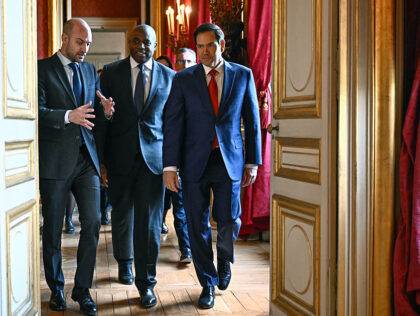
US PEACE TALKS Warning: Rubio’s Bold Move Could Change Ukraine War
— Secretary of State Marco Rubio warned Friday that the U.S. might walk away from Ukraine-Russia peace talks if both sides don’t show real progress soon. Speaking before leaving France, Rubio said Moscow and Kyiv aren’t taking talks seriously. “We’re not going to be flying all over the world and do meeting after meeting if no progress is being made,” he told reporters.
Rubio made it clear that America won’t keep joining pointless meetings just for show. He said the U.S. wants to help end the war in a fair and lasting way, but only if either side truly wants peace.
If Russia or Ukraine doesn’t show they’re ready to compromise soon, Rubio hinted President Trump could decide it’s time for America to step back from negotiations. Still, he left open the chance for future talks if things change.
Many conservatives agree with Rubio’s tough stance, saying America should not waste time or resources on endless discussions that go nowhere while our own country faces serious problems at home.

ISRAEL’S Bold Security Zones Spark Outrage And Fear
— Israel’s defense minister says troops will stay in security zones across Gaza, Lebanon, and Syria for now. He claims these buffer areas are needed to shield Israeli families from threats like Hamas and Hezbollah.
Israel is still hitting Gaza with airstrikes as it tries to force Hamas to release hostages. Local officials say 22 more people died in the latest attacks on Wednesday.
Hamas refuses to let hostages go unless Israel pulls out completely and agrees to a lasting ceasefire. Some hostage families are upset, saying the government cares more about land than saving their loved ones.
Leaders in nearby countries and many Palestinians call Israel’s troop presence an illegal occupation. These moves have made peace talks even harder, with both sides refusing to back down from their demands.

Trump’s TRADE Policies SPARK Dollar Hedge Surge to 5-Year High
— Demand for hedging against a potential decline in the US dollar has surged to a five-year high. Traders are reacting to the Trump administration’s tariff policies, which they believe could weaken America’s economic strength. This uncertainty has prompted investors to seek protection against possible currency fluctuations.
Meanwhile, gold prices have retreated from record highs after initially climbing due to confusion over Trump’s trade agenda. The precious metal was seen as a safe haven amid market volatility but faced selling pressure as traders reassessed their positions. The US dollar’s resilience also contributed to gold’s pullback from its peak of $3,245.
In other financial news, spot Bitcoin ETFs have seen significant withdrawals amid ongoing trade tensions, indicating a move away from riskier assets. Over $713 million was pulled out in just one week, reflecting investor caution during uncertain times. Additionally, Nvidia shares dropped 25% from their 52-week high despite an initial surge following Trump’s announcement of a temporary pause on tariffs.
The Bank of Thailand plans new regulations holding financial institutions accountable for losses due to call center scams. These measures aim to enhance customer protection and ensure service providers share responsibility if they fail regulatory standards. This move underscores global efforts to tackle technology-related financial crimes and protect consumers’ interests in an increasingly digital world.
RUSSIA’S Shocking Attack on Ukraine: EU Calls for Tough Sanctions
— European leaders are outraged by Russia’s missile attack on Sumy, Ukraine, which killed 34 and injured 117. The strike happened during Palm Sunday celebrations, marking the second major civilian tragedy in just over a week.
Polish Foreign Minister Radek Sikorski slammed Russia’s actions as mocking U.S.-led ceasefire efforts. He urged President Trump to see Russia’s blatant disregard for peace initiatives.
Finnish Foreign Minister Elina Valtonen noted the attack followed talks between Trump’s envoy and Putin, showing Russia’s indifference to peace and human life. Lithuania called using cluster munitions a war crime.
French Foreign Minister Jean-Noël Barrot demanded strict EU sanctions against Russia to cripple its economy and stop its war efforts, stressing Putin’s refusal to end hostilities willingly.

RUSSIAN MISSILE Strike: Ukraine Mourns as 34 Lives Lost
— A RUSSIAN missile strike in Ukraine’s Sumy region has taken the lives of at least 34 people. President Volodymyr Zelenskiy condemned the attack, calling it terrorism and urging a strong international response. He asked the United States and European nations to take decisive action against Moscow.
This tragic event raises tensions amid ongoing ceasefire talks between Ukraine and Russia. Both countries have accused each other of breaking agreements meant to protect energy infrastructure, making diplomatic efforts more difficult.
Zelenskiy stressed the need for stronger diplomatic pressure on Russia during a CBS News interview, highlighting the urgency for global intervention in this escalating crisis.
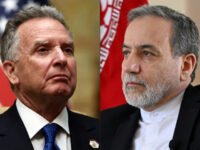
US-IRAN TALKS in Oman: A Hopeful Step or Dangerous Gamble?
— A significant meeting took place in Oman between U.S. and Iranian officials. Special Envoy Witkoff and U.S. Ambassador Ana Escrogima met with Iranian Foreign Minister Dr. Abbas Araghchi, hosted by Omani Foreign Minister Said Badr in Muscat. The talks were described as positive, with the U.S. thanking Oman for its support.
Special Envoy Witkoff highlighted President Trump’s directive to resolve differences through dialogue if possible, noting the complexity of the issues at hand. The meeting was seen as a step forward toward a mutually beneficial outcome, with both sides agreeing to meet again next Saturday.
President Trump stressed the importance of these talks alongside Israeli Prime Minister Benjamin Netanyahu last Monday, stating that Iran must not have nuclear weapons. He expressed hope for a diplomatic solution but warned that failure could lead to “very dangerous territory,” suggesting Iran would face “great danger” if talks failed.

BRITAIN’S Bold Military Boost to Ukraine: A Game-Changer?
— Britain announced a major military support package for Ukraine, pledging over $580 million alongside Norway. This aid includes drones, radar systems, and anti-tank mines. The goal is to strengthen Ukraine’s defenses against the ongoing Russian invasion.
Ukrainian Defense Minister Rustem Umerov stressed the need for advanced air defense systems like Patriot missiles. He urged Western allies to supply these systems to shield Ukrainian cities from Russian ballistic threats, noting that such equipment is available among Ukraine’s partners.
Russia holds a strategic edge as the conflict enters its fourth year. Ukrainian officials expect a new Russian offensive aiming to boost their position in ceasefire talks. The situation remains tense with both sides gearing up for possible escalations.
The 27th meeting of the Ukraine Defense Contact Group was held in Brussels, led by Britain and Germany. U.S. Defense Secretary Pete Hegseth was notably absent but joined via video after returning from Panama earlier this week.

— Prince Harry surprises Ukraine with visit to war victims The Duke of Sussex met with injured veterans as part of his ongoing support for those affected by conflict, according to a spokesperson

— Prince Harry surprises war victims in Ukraine The Duke of Sussex met with those affected by the conflict during his visit, focusing on support for wounded veterans
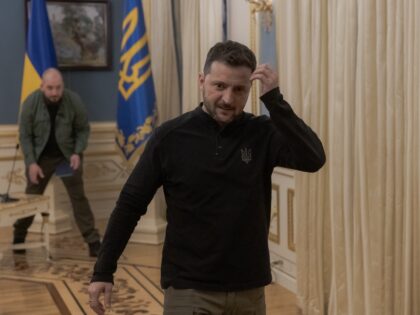
UK’S BOLD Defense Strategy: REASSURANCE Force for Ukraine Unveiled
— The UK’s Ministry of Defense is crafting a “reassurance force” to bolster Ukraine against Russian aggression. Admiral Antony Radakin stressed enhancing the Ukrainian army’s strength to deter future threats. Talks this weekend aim to set the stage for further discussions in Brussels with defense ministers and the Ukraine Defense Contact Group on Friday.
Britain supports a European-led peacekeeping force in Ukraine, relying on U.S. backing to counter potential Russian reprisals effectively. The proposed force could include 10,000 to 30,000 troops — a significant pledge from nations rebuilding post-Cold War militaries. Former President Trump has consistently pushed for a ceasefire and opposed Ukraine joining NATO, pausing military aid during his tenure.
Meanwhile, the death toll from a Russian missile strike in Kryvyi Rih has risen to 18, including nine children, according to regional Governor Serhii Lysak. The attack injured 72 people — half remain hospitalized with serious injuries affecting 17 critically. Oleksandr Vilkul of the city’s defense council condemned the attack: “There can never be forgiveness for this.”
TRUMP’S 10% Tarifts Spark Stock Market Chaos
— U.S. stocks plunged after President Trump announced a 10% tariff on all trading partners. The Dow dropped about 1,300 points, with the S&P 500 and Nasdaq also taking hits. Investors quickly reacted, showing concern over potential economic fallout.
President Trump plans to impose reciprocal tariffs starting at 10%, targeting countries worldwide and adding extra duties for “worst offenders.” This move has unsettled markets and might lead to higher consumer costs and a possible recession. Economists are worried about the long-term effects on both domestic and global economies.
Globally, the response has been mostly negative, with many countries considering countermeasures to protect their economies from these new tariffs. This rise in trade tensions marks a significant shift in international economic relations under Trump’s leadership. Key sectors relying on international trade may face challenges as relationships with major trading partners change.

“TRUMP’S Tariffs Spark Gold Rush: Investors Flock to Safety”
— Gold prices soared to near all-time highs after President Donald Trump announced reciprocal tariffs. Investors rushed to gold as a safe-haven asset amid rising trade tensions. The precious metal hit a record peak of $3,148.88, marking an increase of over $500 in 2025 alone.
Wall Street showed resilience as stocks edged higher despite Trump’s looming tariff announcements. While the market felt some relief, uncertainty lingers about which sectors will be most affected by these new trade policies. Concerns remain about potential economic slowdowns from these tariffs.
The U.S. dollar weakened against major currencies as traders awaited more details on Trump’s tariff plans, called “Liberation Day.” This anticipation has already impacted international trade and financial markets globally. Meanwhile, the EUR/USD exchange rate climbed near 1.0820 due to the dollar’s decline and ongoing market anxieties over impending tariffs.
In other financial news, Newsmax stock plummeted 77% after an initial post-IPO rally of 2,550%. Despite reporting significant losses in 2024, the stock’s volatility continues to attract risk-seeking investors looking for high-stakes opportunities in a turbulent market environment.
TRUMP’S Tarif Actions Spark Gold Rush Over $3,100
— Gold prices have soared past $3,100 per ounce for the first time. Concerns over President Donald Trump’s tariffs and geopolitical tensions are pushing investors to seek safety in gold. This surge shows market anxiety about potential economic impacts from U.S. policy changes.
President Trump plans to announce a new round of tariffs on Wednesday, dubbing it “liberation day.” These actions are expected to significantly influence currency markets. ING analysts suggest that the USD might benefit from these tariff announcements as global trade dynamics shift.
Meanwhile, futures markets are dipping as investors brace for upcoming tariff implementations and their broader economic effects. The uncertainty surrounding these policies is causing volatility across various financial sectors.
In related news, China’s major state-owned banks are raising substantial funds to support their economy amid global financial shifts. Beijing’s support highlights the interconnectedness of international markets during this period of heightened tension and change.
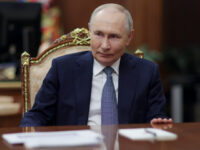
PUTIN’S Bold Peace Plan: Brics And North Korea In Ukraine Talks?
— Russian President Vladimir PUTIN has proposed a fresh approach to peace talks in Ukraine, suggesting the expanded BRICS group play a role. This collective now includes Egypt, Iran, UAE, and Ethiopia. In 2024, thirteen more nations joined as "partner countries.
PUTIN’s comments left it unclear if all new members and partners would join the talks. Including North Korea could complicate things due to its military support for Russia against Ukraine. South Korea reported that North Korea sent troops and weapons to help Russia’s war efforts.
Amid these events, North Korean leader Kim Jong-un plans another visit to Russia this year. Russian Deputy Foreign Minister Andrew Rudenko confirmed the visit is being arranged but didn’t provide a date. Kim visited Russia in 2019 and 2023, strengthening ties between the two countries.
During his Murmansk visit, PUTIN suggested replacing Ukrainian President Zelensky with an interim international administration under UN oversight for peace accords and elections. He proposed including the U.S., European countries, and Russia’s allies in this temporary governance structure for Ukraine.
TRUMP’S Tariff Moves Spark Gold Rush to Record High
— Gold prices have hit a record high of $3,059. President Trump’s tariff policies have reignited trade war fears. Investors are turning to gold, a traditional safe-haven asset, as global trade tensions rise and stock markets become volatile. Trump’s new auto tariffs add to the uncertainty, driving gold prices up.
In other financial news, over 3 million Americans will see a Social Security boost in April 2025 due to the repeal of WEP and GPO under the Social Security Fairness Act. This law restores full benefits for public sector retirees and others with non-covered pensions, providing relief for many citizens.
Meanwhile, foreign institutional investors made significant net purchases worth Rs 11,111 crore on March 27. This marks the highest single-day inflows in 2025 so far. The Nifty and Sensex indices resumed their uptrend driven by strong buying in heavyweight financial stocks like HDFC Bank and Reliance Industries.
Financial expert Jim Cramer advises investors to consider GSK plc for its promising stock prospects amid growing artificial intelligence investments. With a yield of 4%, Cramer suggests that GSK could be a solid addition to investment portfolios during these uncertain times.

— Russia ‘dragging feet’ on Ukraine peace deal, says Trump The former president’s remarks follow Russia’s insistence that it will only halt military actions in the Black Sea after sanctions on its banks and exports are removed

— Russia may be ’dragging feet’ on Ukraine peace deal, says Trump The former president’s remarks follow Russia’s insistence that it will only agree to a ceasefire in the Black Sea once sanctions on its banks and exports are removed
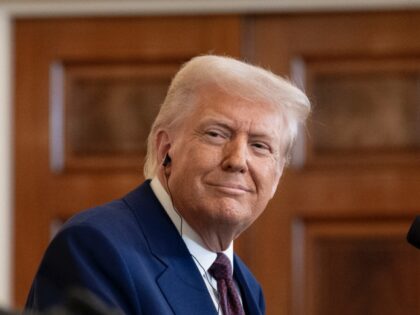
TRUMP’S GOLD Card Plan: Economic Boost or Risky Gamble?
— During a chat with Laura Ingraham, former President Donald Trump tackled worries about his gold card plan. He assured that any unsavory individuals would be screened and removed if needed. Trump stressed that those found unfit would get refunds and be sent out of the country.
Trump pointed out the economic perks of the plan, noting that people who can pay the $5 million fee are likely to create jobs. He believes these immigrants will boost the economy by generating jobs and encouraging business growth.
Trump also mentioned that companies might buy these gold cards to hire top graduates from America’s best schools. This strategy aims to attract skilled professionals who can drive innovation and competitiveness in various fields.

— Trump proposes US management of Ukraine’s power plants The former president claims the US could leverage its "electricity and utility expertise” to operate them effectively
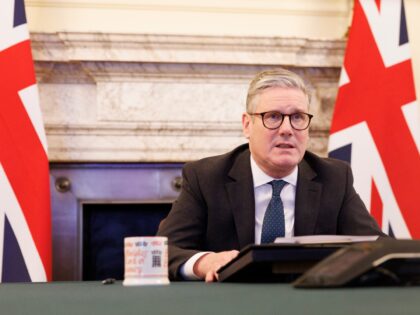
TRUMP vs PUTIN: The Dramatic Ukraine Ceasefire Standoff
— An upcoming virtual summit, led by Starmer’s “coalition of the willing,” will discuss military and financial aid for Ukraine. The meeting will also consider a peacekeeping mission if Russia agrees to talks.
About 25 countries, including European partners and Ukraine, plan to join. Notably missing is the United States, which has changed its stance on the war under President Donald Trump after his recent clash with Ukrainian President Zelenskyy in the Oval Office.
The U.S. proposed a 30-day ceasefire in Ukraine, backed by Zelenskyy but met with conditions from Putin. Secretary of State Marco Rubio expressed “cautious optimism” about Putin’s potential agreement after talks with U.S. envoy Steve Witkoff.
Starmer doubts Putin’s intentions and criticizes his delay tactics regarding Trump’s peace plan. He insists that concrete commitments are needed as Putin continues playing “pointless games” with ceasefire proposals, showing little seriousness about achieving peace.

GLOBAL SUMMIT on Ukraine: Defiant Stand Against Russia
— The upcoming virtual summit, known as the “coalition of the willing,” will focus on military and financial aid for Ukraine. Leaders from around 25 countries, including European partners, Australia, Canada, New Zealand, and Ukraine itself, will participate. NATO and EU officials are also expected to join these crucial discussions.
The meeting follows a U.S. proposal for a 30-day ceasefire in Ukraine that President Zelenskyy supports. Russian President Putin has shown conditional support but wants details clarified before agreeing. U.S. Secretary of State Marco Rubio expressed “cautious optimism” about Putin’s potential backing after meetings with envoy Steve Witkoff.
Notably absent is a representative from the United States due to a shift under President Trump’s administration compared to Joe Biden’s policies. Trump’s recent clash with Zelenskyy highlights this change in strategy towards resolving the Russia-Ukraine conflict through different means than his predecessor used.
UK leader Starmer remains skeptical about Russia’s intentions and stresses that concrete commitments are necessary as Putin engages in what he calls “pointless games” with Trump’s peace plan proposals. Starmer criticized the Kremlin’s disregard for Trump’s ceasefire proposal as evidence of Russia’s lack of seriousness about achieving peace in Ukraine.

FEDERAL Agents’ SHOCKING Arrests Spark Immigration Law Outrage
— In Liberty, Missouri, armed Department of Homeland Security agents allegedly arrested 12 restaurant workers without warrants. The incident took place at a Mexican restaurant where workers were reportedly barricaded inside. This has sparked concerns about the overreach of federal immigration enforcement.
Mark Fleming from the National Immigrant Justice Center argues that agents are exceeding their legal authority. He stresses that while ICE can enforce immigration laws, they must follow constitutional and congressional limits. This case highlights ongoing debates about balancing national security with individual rights.
Chicago attorneys have taken this issue to federal court, accusing agents of violating both immigration law and constitutional rights since January. At least 22 individuals claim their rights were breached during these operations. This legal battle underscores tensions surrounding U.S. immigration enforcement practices.

PUTIN’S Conditions for Ukraine Ceasefire Exposed: What He Really Wants
— Russian President Vladimir PUTIN supports a ceasefire in Ukraine, but with strings attached. At a Moscow news conference, he stressed the need to tackle the “root causes” of the conflict.
Putin’s remarks show that while he wants fighting to stop, talks must address deeper issues. This highlights Russia’s focus on its strategic goals in the region.
The peace proposal comes amid ongoing tensions and global calls to end hostilities. Observers say any ceasefire will need careful negotiation and compromise from all sides involved.
UKRAINE Faces HEARTBREAKING Setback in Russia Conflict
— Ukraine’s recent gains in Russia have sharply declined. Initially, the Ukrainian army captured 500 square miles of Russian land, boosting morale and strengthening their negotiation position. However, the situation has changed drastically.
Under intense pressure from Russian forces, bolstered by North Korean troops, Ukraine now retains only 30% of the territory it initially seized. The rapid retreat from Sudzha highlights the challenges faced by Ukrainian forces.
This shift in control weakens Ukraine’s leverage in potential ceasefire talks with Russia. The loss of this bargaining chip complicates future peace negotiations for Kyiv’s leadership as they navigate ongoing hostilities.
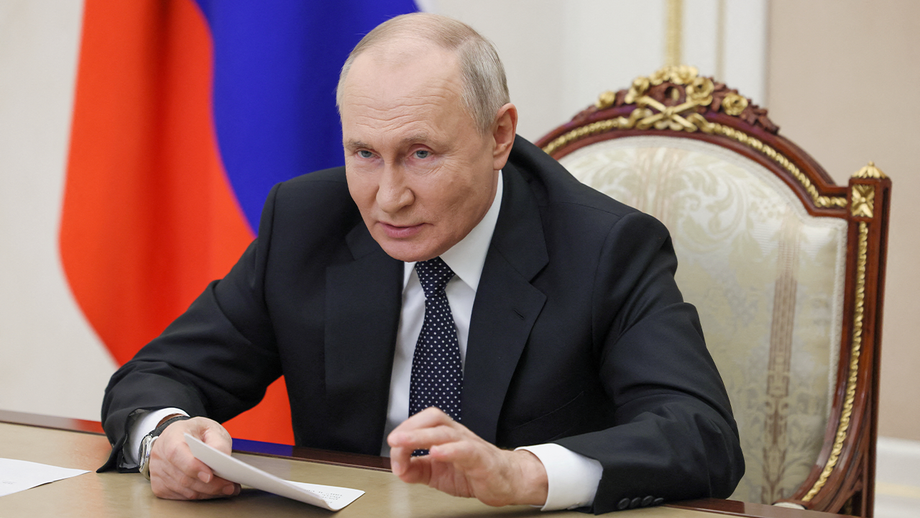
PUTIN PRAISES Trump: Calls for True Peace in Ukraine
— Russian President Vladimir PUTIN thanked Donald Trump for his efforts to end the Ukraine conflict. Yet, Putin stressed the need for true peace, not just a 30-day ceasefire. He agreed with the idea but emphasized resolving deeper issues with American partners.
Putin spoke at a Moscow news conference, supporting an end to fighting but urging solutions to root problems. Meanwhile, U.S. officials met Saudi and Russian leaders in Riyadh about regional stability and security. Key figures included Secretary of State Marco Rubio and national security advisor Mike Waltz.
Though Putin didn’t reject Ukraine’s ceasefire deal outright, he noted challenges like Ukrainian troops in Russia’s Kursk region. He argued that a ceasefire would mainly help Ukraine by giving it time to regroup and rearm its forces.
In these conditions,“ Putin said, ”it would be good for the Ukrainian side to secure a ceasefire for at least 30 days.
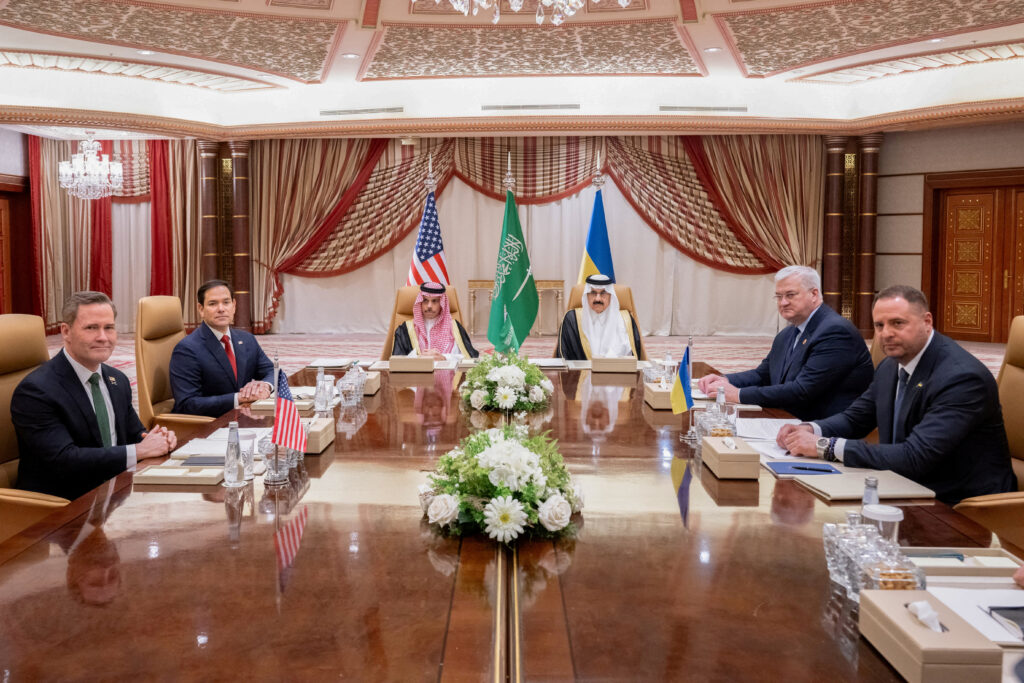
PUTIN’S Ceasefire Agreement: Is Peace in Ukraine a Reality?
— Russian President Vladimir PUTIN has agreed to a U.S. proposal for a 30-day ceasefire in Ukraine. However, he insists on clarifying key terms to ensure lasting peace. Putin worries the ceasefire might allow Ukrainian forces to regroup after their recent gains.
In the Kursk region, Russian forces reportedly recaptured Sudzha, a strategic town previously under Ukrainian control. This development complicates Kyiv’s position in potential peace talks and highlights ongoing volatility and strategic moves by both sides.
U.S. officials, including Trump’s special envoy Steve Witkoff, are in Moscow discussing the ceasefire proposal with Russian counterparts. Despite diplomatic efforts, skepticism remains high among Putin’s aides who suspect it might be a ploy for Ukraine to prepare for further conflict. The U.S., however, is pushing for Russia’s acceptance as part of broader peace efforts involving trade tensions with Canada too.
Ukrainian President Volodymyr Zelenskyy remains cautious about Russia’s commitment due to past breaches by Moscow. He emphasizes the need for guarantees that any ceasefire will lead to genuine peace rather than just temporary relief from hostilities. These developments underscore ongoing complexities and potential impacts on future relations between these nations.;

DEMOCRATS’ SHUTDOWN Gamble: Will They Risk It All?
— Senate Democratic Minority Leader Chuck Schumer warns that the 60 votes needed to pass the funding bill aren’t secured. He suggests a one-month extension with current spending levels for bipartisan talks. This move aims to strengthen Democrats’ position against President Trump but risks making them seem ineffective.
The threat of a government shutdown, which would furlough federal workers and disrupt critical operations, adds pressure on Democrats. Schumer’s strategy could either unify his party or gamble that Republicans will face backlash if a shutdown occurs.
Democrats refuse to back what they call a partisan Republican funding bill, intensifying Senate tensions amid ongoing tariff discussions under Trump’s administration. With only 52 Republican votes, failing to reach 60 could lead to a significant political showdown as both parties brace for potential fallout from their strategies.

UKRAINE and RUSSIA Ceasefire: A Shocking Step Toward Peace
— The United States will resume military aid and intelligence sharing with Ukraine. This decision follows recent talks in Saudi Arabia. Kyiv is ready to accept a U.S. proposal for a 30-day ceasefire with Russia.
This marks a big change in the ongoing conflict between Ukraine and Russia. The proposed ceasefire aims to lower tensions and open the door for more diplomatic talks. Both countries have been locked in long hostilities, affecting regional stability.
The agreement highlights the U.S.'s commitment to supporting Ukraine against Russian aggression. Military aid is vital for Ukraine’s defense, while intelligence sharing boosts strategic abilities. This move could lead to more comprehensive peace talks soon.

UKRAINE Cease-Fire: Russia’s RESPONSE Could Change Everything
— Russia is waiting for details from Washington on U.S.-Ukrainian cease-fire talks held in Saudi Arabia. Kremlin spokesperson Dmitry Peskov said they need “detailed information” before commenting on the 30-day cease-fire proposal that Ukraine has accepted. Moscow has always opposed temporary measures, wanting a permanent solution to the conflict.
Secretary of State Marco Rubio led the American team in these discussions and confirmed Ukraine’s willingness for a 30-day cease-fire. Rubio assured that the U.S. will inform Russia about the proposal, aiming for immediate talks to end the war permanently.
U.S. envoy Steve Witkoff plans to visit Russia later this week and may meet President Vladimir Putin. “We’re going to bring it to them directly,” Rubio emphasized, showing that Ukraine is ready for negotiations if Russia agrees.
Rubio noted that if Russia accepts, it would be substantial progress toward peace. A refusal would reveal Moscow’s true intentions regarding Ukraine’s ongoing conflict. The outcome could greatly impact future diplomatic relations and regional stability.
UKRAINE’S BOLD Move: US-Backed Ceasefire Sparks Hope
— Ukraine has agreed to a U.S.-proposed one-month ceasefire with Russia, if Russia follows the terms. This follows talks with U.S. National Security Advisor Mike Waltz, Secretary of State Marco Rubio, and Saudi Foreign Minister Prince Faisal bin Farhan Al Saud. This is a crucial step amid rising tensions in the region.
The ceasefire proposal shows increased diplomatic efforts by various nations to stabilize Eastern Europe. Saudi Arabia’s involvement highlights its growing role in international peace efforts and may lead to more comprehensive negotiations in the future.
Ukraine’s decision reflects a strategic move towards diplomacy while being cautious about Russia’s commitment to the terms. As global attention turns to this truce, it’s crucial for both sides to adhere strictly for lasting peace prospects.
This development is key for ongoing talks about Ukraine’s conflict with Russia and could lead to stronger diplomatic resolutions if successful. The world watches closely, hoping for peace in this long-standing conflict zone.

PAKISTAN TRAIN Hijack: Shocking Hostage Claims Spark Chaos
— A train hijacking in Pakistan has caused confusion over the number of hostages. The Baloch Liberation Army (BLA) says they took 182 people, while police claim all 350 passengers are safe.
Special forces have been sent to handle the situation and protect passengers. This incident has caught media attention and raised fears about regional security and militant groups.
The response from law enforcement and military units shows a strong commitment to quickly resolving the crisis. Yet, conflicting reports reveal the chaos and challenge of getting accurate information in such events.

UKRAINE’S Shocking Move: US Ceasefire Plan Accepted
— Ukraine and the United States announced a major development on Tuesday. After discussions in Saudi Arabia, Ukraine agreed to a U.S. proposal for a 30-day ceasefire with Russia. This decision comes as the U.S. resumes military aid and intelligence sharing with Kyiv immediately.
The joint statement from both countries highlights their cooperation amid ongoing tensions with Russia. The ceasefire aims to provide a temporary halt in hostilities, allowing diplomatic efforts to take center stage.
This move is seen as a strategic step by the Biden administration to stabilize the region temporarily while exploring long-term solutions. Critics argue that such measures may only offer short-lived relief without addressing deeper issues in Eastern Europe.

UKRAINE CEASEFIRE: US Backs Peaceful Hope In Russia Conflict
— The United States will restart military aid and intelligence sharing with Ukraine. This decision comes after talks in Saudi Arabia, where Kyiv accepted a 30-day ceasefire proposal from the U.S.
This move aims to ease tensions in the ongoing conflict with Russia. The joint statement highlights cooperation between the U.S. and Ukraine to stabilize the region and explore peace options.
The agreement is a crucial step towards potential resolution, though challenges remain as military actions continue in the area. Both nations express hope for a peaceful outcome through this temporary truce.

US RESUMES SECURITY Support to Ukraine: A Bold Move for Peace
— The United States will restart military aid and intelligence sharing with Ukraine. This decision comes after Kyiv showed it is ready to accept a U.S.-proposed 30-day ceasefire with Russia.
This action is part of a larger diplomatic plan to stabilize the region amid ongoing tensions. US officials emphasize how crucial this aid is for Ukraine’s defense and regional stability.
Both countries are in talks to reduce conflict and find lasting peace solutions. Restarting support marks a big step in US-Ukraine relations during these tough times.
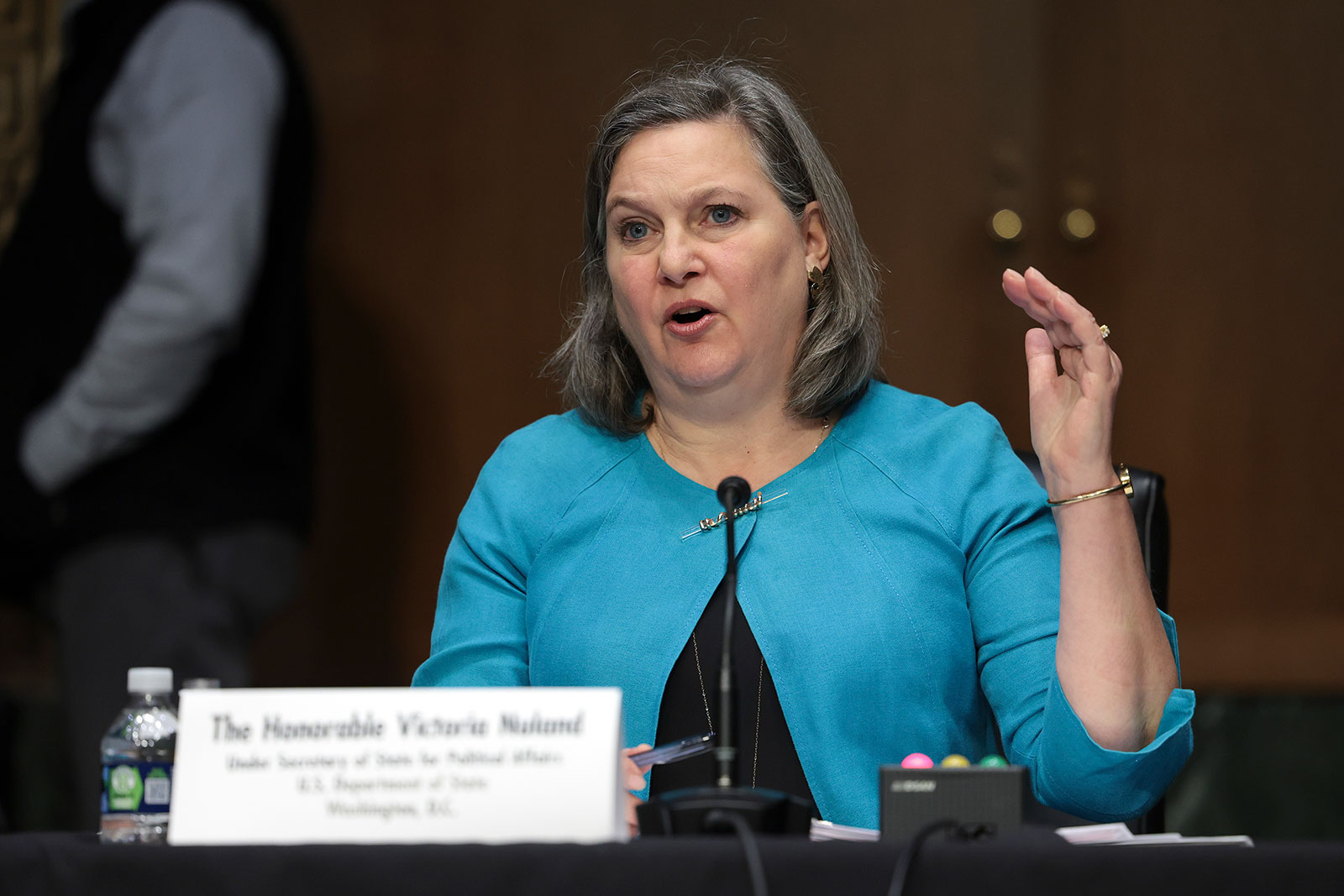
US RESTARTS Military AID to Ukraine: A Bold Move Amid Ceasefire Talks
— The UNITED STATES has agreed to restart military aid and intelligence sharing with Ukraine. This decision comes as Kyiv considers a U.S.-proposed 30-day ceasefire with Russia. The announcement marks a pivotal moment in U.S. support for Ukraine amid ongoing conflict.
A joint statement from U.S. and Ukrainian officials confirmed the resumption of security support. The proposed ceasefire aims to reduce hostilities and open doors for further negotiations between the involved parties, signaling a strategic shift in U.S. foreign policy toward stabilizing Ukraine through diplomacy.
This announcement arrives during heightened tensions between Ukraine and Russia, where continued hostilities threaten regional stability. Since the conflict began, the U.S.’s role has been crucial in providing both military and humanitarian assistance to Ukraine, underscoring its commitment to supporting allies against aggression.

US RESUMES MILITARY AID to Ukraine: A Bold Move Amid Ceasefire Talks
— The Trump administration has announced the immediate resumption of military aid to Ukraine. This decision aligns with Ukraine’s openness to a 30-day ceasefire, signaling a potential shift in the ongoing conflict. Delegations from both sides engaged in discussions for several hours, with more talks planned.
President Donald Trump is set to speak with Russian President Vladimir Putin about a possible ceasefire. Ukrainian President Volodymyr Zelensky has been invited back to the White House for further discussions. The Russian Foreign Ministry expressed willingness for continued dialogue with U.S. representatives, sparking hope for a peaceful resolution that respects Ukraine’s sovereignty.
Safety concerns have escalated following a tragic midair collision involving an Army helicopter and an American Airlines jet near Ronald Reagan Washington National Airport in January 2025. All 67 individuals on board both aircraft perished, prompting NTSB investigator Jennifer Homendy to urge the FAA to implement urgent safety measures immediately.
On the economic front, Asian markets are experiencing significant declines amid global sell-off trends impacting investor confidence worldwide. Japan, South Korea, and Taiwan saw market drops of about 2% as part of this broader financial downturn following the S&P 500’s worst day of the year on March 11th.
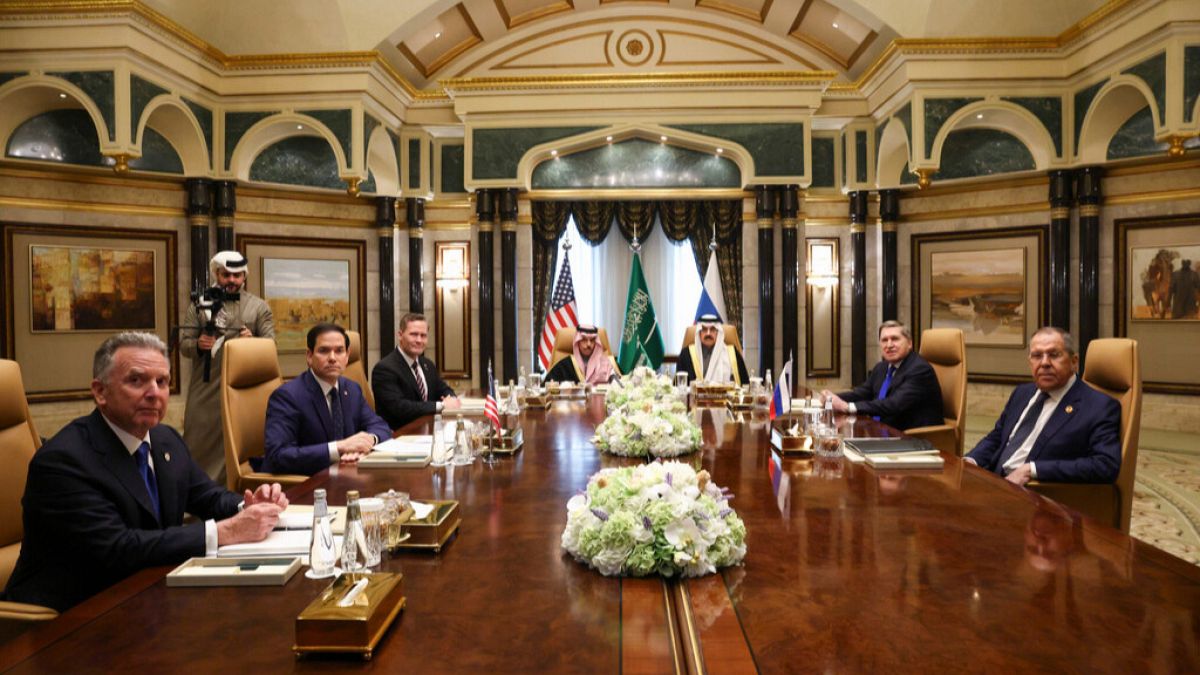
SAUDI TALKS: Ukraine’s Desperate Bid for Peace in High-Stakes Meeting
— High-stakes talks between Ukraine and the United States kicked off in Jeddah, Saudi Arabia, aiming to end Kyiv’s ongoing conflict with Moscow. This meeting follows a massive drone attack where Russian defenses shot down 337 Ukrainian drones over ten regions in Russia, resulting in two deaths and 18 injuries.
U.S. Secretary of State Marco Rubio met with senior Ukrainian officials at a luxury hotel, while Saudi Arabia’s foreign minister was present. Despite the tense atmosphere, there was no immediate comment from either side about the drone attack. The talks signal a renewed diplomatic effort after tensions rose during President Zelenskyy’s recent visit to the White House.
Ukrainian officials plan to propose a ceasefire covering the Black Sea for safer shipping routes and an end to long-range missile strikes affecting civilians. They also seek prisoner releases as part of their proposal.
Russia remains firm on its conditions for peace, demanding Ukraine abandon its NATO aspirations and recognize Russian-occupied regions as part of Russia before stopping hostilities. No concessions have been publicly offered by Moscow at this time.
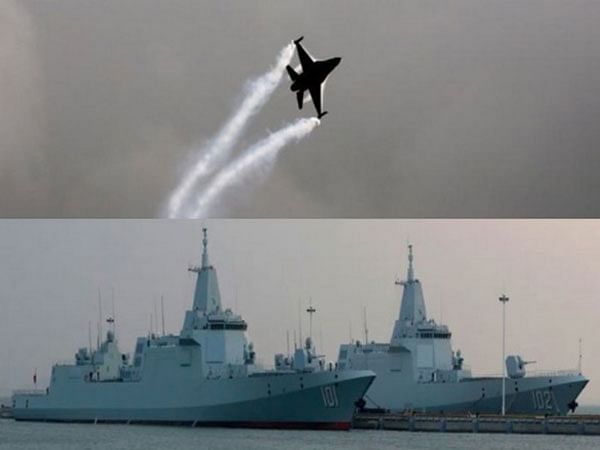
CHINA’S Aggressive Moves Near Taiwan Spark Fears
— Taiwan has spotted 11 Chinese military aircraft and nine vessels close to its territory. This highlights the rising tensions between China and Taiwan.
China’s United Front Work Department has created a misinformation unit, boosting efforts in cognitive warfare against Taiwan. This shows China’s strategic focus on psychological operations in the area.
These military actions stress Taiwan’s need to stay alert as China increases its maneuvers. The situation demands global attention to maintain regional stability and peace.
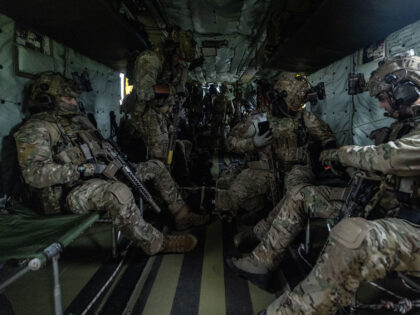
BRITAIN and EUROPE Rally Defense: A Bold Response to Ukraine WAR
— Britain and Europe are ramping up their defense in response to the Ukraine War. Secretary of State for Defence John Healey confirmed this commitment to U.S. Secretary of Defense Pete Hegseth. Healey praised Trump’s NATO policy, emphasizing Europe’s need for self-reliance in defense matters.
NATO’s requirement of spending two percent of GDP on defense has been a standard for years, but many European countries have fallen short. With current threats, discussions are underway to raise this minimum to three or even five percent, similar to Cold War levels. UK Health Minister Stephen Kinnock backed these efforts, saying Europe must be ready to defend its territory.
Kinnock acknowledged America’s push for NATO members to boost their defense capabilities and called it “absolutely right.” He highlighted the need for military readiness and meeting challenges directly. However, he criticized past Conservative governments while overlooking Labour’s own failures during their rule from 1997 to 2010.
During Labour’s last time in power, national defense spending dropped despite Tony Blair’s involvement in Iraq. The British military faced severe equipment shortages due to poor funding then. An inquiry later exposed critical gaps like a lack of helicopters and armored vehicles that compromised troop safety during overseas missions.
EUROPEAN UNION in Turmoil: Defense Woes Under Trump
— European Union leaders rushed to Brussels for emergency talks, worried about U.S. support under President Donald TRUMP. They focused on boosting European security and protecting Ukraine. Friedrich Merz, Germany’s likely next chancellor, and summit chairman Antonio Costa discussed quickly strengthening Europe’s defenses.
Merz pushed for easing Germany’s debt rules to boost defense spending. Meanwhile, French President Emmanuel Macron proposed using France’s nuclear capabilities to protect Europe from Russian threats. This is a big change since Trump began disrupting U.S.-Europe security ties.
Danish Prime Minister Mette Frederiksen stressed the need for more defense spending across Europe, a big shift from past budget priorities where military funding was low. Macron promised that EU countries would increase military budgets and work together on advanced weapon production in Europe.

US INTEL CUTS to Ukraine Spark Fears of Abandonment
— The UNITED STATES has stopped sharing intelligence with Ukraine, causing worry among European allies. President Macron warned Europe to prepare for a future where the US might not be as supportive. This change comes amid the ongoing conflict between Ukraine and Russia.
In response, EU members are holding emergency talks to strengthen support for Ukraine. They aim to address changing dynamics and ensure continued backing for Kyiv in its fight against Russian aggression.
Meanwhile, severe weather during Mardi Gras destroyed a recently rebuilt camp in Plaquemines Parish, Louisiana. Owner Christian Amedee believes a tornado caused the damage, adding more hardship after reconstruction efforts.
In other news, former President Trump issued a stern warning to Hamas about Israeli hostages in Gaza. He suggested dire consequences if civilians held hostages during negotiations in Qatar aimed at resolving the conflict and securing hostage releases.
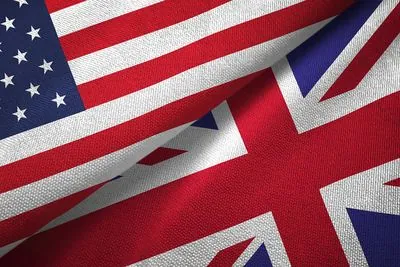
US HALTS Intel SHARING with Ukraine: A Dangerous Turn in Conflict
— The United States has paused its intelligence sharing with Ukraine, confirmed by the National Security Adviser. This decision comes amid rising tensions in the ongoing conflict with Russia. The pause is expected to significantly impact Ukraine’s military operations and intelligence capabilities.
Increased military activity along Ukraine’s borders raises concerns about Russia’s intentions. The U.S. administration cites a need to reassess intelligence protocols due to security risks involved. Analysts warn that without U.S. intel, Ukraine may struggle to counter potential Russian attacks effectively.
This development is part of broader geopolitical tensions involving global players like China, which recently expressed readiness for conflict with the United States. The implications for international relations are significant as this situation unfolds further.
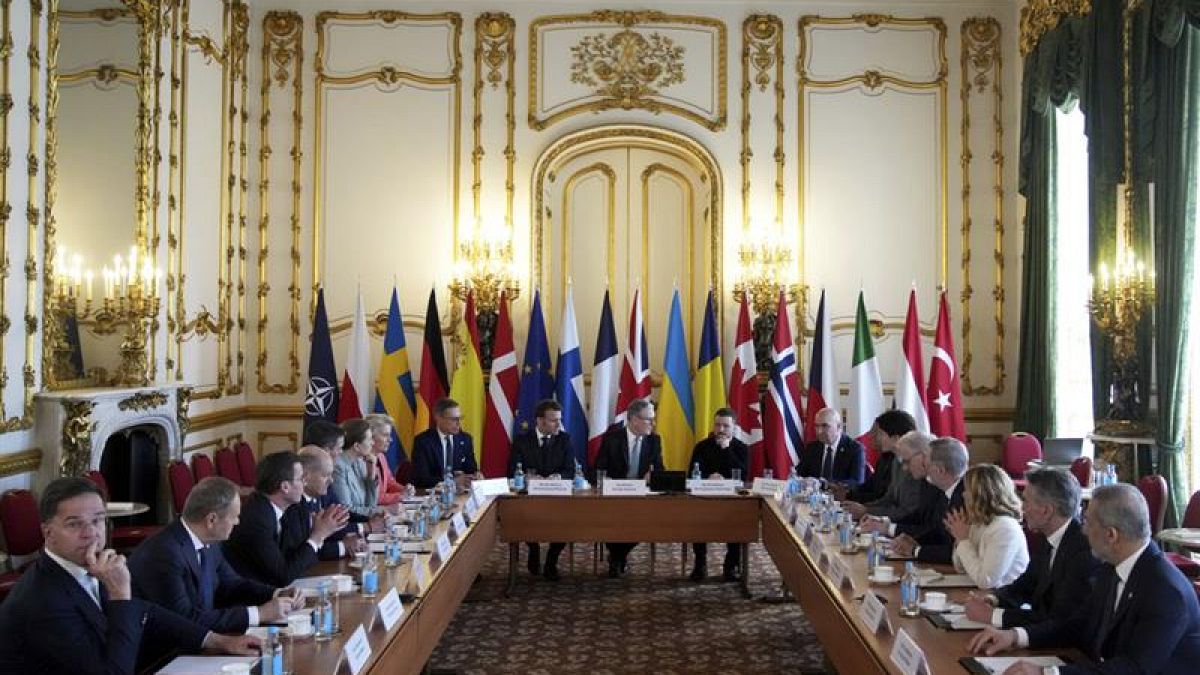
EUROPE’S Bold Move: Seizing Control in Ukraine Talks
— European leaders are eager to steer Ukraine-Russia negotiations. At a London summit, British Prime Minister Keir Starmer stressed the importance of this moment for the West. Their aim is to unify Europe’s stance as Kyiv-Washington relations worsen.
Tensions rose after Ukrainian President Zelensky met with former U.S. President Donald Trump, causing concern across Europe. The meeting reportedly alarmed European leaders who fear a change in U.S. policy could disrupt ongoing efforts in the region.
Europe wants to present a united strategy that prioritizes regional stability and security over outside influences from across the Atlantic. This move shows Europe’s intent to assert its influence and leadership in resolving the conflict effectively and independently.
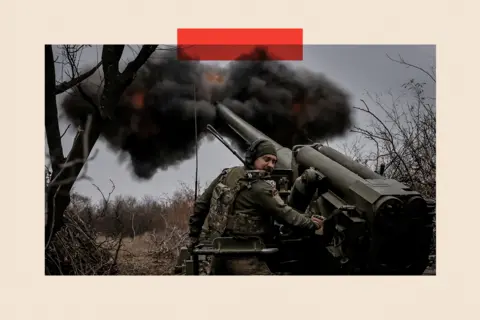
ZELENSKYY SLAMS Trump: Ukraine’s Fight for Survival Ignites Global Debate
— Ukrainian President Volodymyr Zelenskyy has criticized former U.S. President Donald Trump for his comments on Ukraine’s military support from the United States. Trump suggested that Ukraine is “gambling with World War Three,” which sparked a strong response from Zelenskyy. He stressed Ukraine’s fight for sovereignty and the crucial role of international backing against Russian aggression.
International leaders are worried about Trump’s remarks, fearing they might affect U.S.-Ukraine relations. European leaders continue to support Ukraine, highlighting the need for ongoing military and economic aid. This diplomatic tension arises amid ongoing hostilities between Ukrainian and Russian forces, with reports of increased conflict in certain areas.
Experts warn this public clash could shape future U.S. policy toward Ukraine, especially if Trump returns to power. The debate over military aid and diplomatic ties might impact Eastern Europe’s political and economic stability. The situation highlights the urgent need for international diplomacy to address the crisis in Ukraine while considering how internal U.S. politics affect global affairs.

APPLE’S $500 Billion Gamble: Can It Really Boost American Jobs?
— Apple has unveiled a groundbreaking $500 billion investment plan in the U.S. over the next four years. A new manufacturing facility in Houston, focused on AI servers, is part of this initiative. CEO Tim Cook highlighted this as a major push for American innovation and job creation.
The plan includes doubling Apple’s U.S. Advanced Manufacturing Fund to $10 billion, aiming to create 20,000 jobs. The Houston plant will cover 250,000 square feet and produce hardware for Apple Intelligence, their AI system. This comes amid trade tensions from tariffs on Chinese imports imposed by President Trump that affect tech sectors like chips.
Apple’s strategy appears aimed at countering trade challenges while competing with tech giants like Microsoft and Google in AI markets. Yet analysts question the feasibility of such an ambitious plan given Apple’s current capital of less than $160 billion and wonder if inflation-adjusted spending might actually decrease rather than increase real terms spending.
Questions persist about creating 20,000 jobs at an estimated cost of $25 million per job, casting doubt on Apple’s claims’ practicality. While Apple’s bold move seeks to navigate geopolitical pressures and market realities, its success remains uncertain amidst these challenges.

“TRUMP’S Bold Peace Plan with Russia and Ukraine Stirs EU Fears”
— European leaders are worried about President Trump’s efforts to broker peace between Ukraine and Russia. The EU’s top diplomat claims Russian President Putin is not interested in peace. Trump mentioned having “very good talks with Russia” but did not share details on any progress made.
NATO allies and long-time U.S. partners are frustrated by Trump’s remarks on Ukraine, seeing them as an attempt to improve ties with Moscow. EU High Representative Kaja Kallas stressed the need for dialogue but noted Russia’s reluctance for peace.
Trump held his first Cabinet meeting, stating NATO membership was not an option for Ukraine, which could change the conflict’s dynamics. Kallas urged more economic and political pressure on Russia to strengthen Ukraine both militarily and diplomatically.
As Trump and Ukrainian President Zelenskyy work towards a minerals deal, there is hope it might lead to ceasefire talks, though doubts linger about its effect on achieving lasting peace.

“MUSICIANS’ SILENT Protest: AI Law Changes Spark Outrage”
— A new album titled “Is This What We Want?” features over 1,000 musicians and the sound of silence. Released to protest proposed changes to British AI laws, artists fear these changes could erode creative control. The U.K. government is considering allowing tech firms to use copyrighted material for AI training unless creators opt out.
Critics argue this could undermine artists’ control over their work and harm Britain’s creative industries. Notable figures like Elton John and Paul McCartney have voiced opposition to the plan. Composer Ed Newton-Rex organized the album, which includes recordings of empty studios symbolizing potential future impacts on the industry.
The album’s contributors range from famous names like Kate Bush and Annie Lennox to lesser-known musicians, highlighting widespread concern across the music community. Newton-Rex emphasized that this issue affects all artists, regardless of fame or recognition. The project serves as a powerful statement against what many see as a threat to artistic integrity in an increasingly digital world.

MACRON’S PEACE Plea: Could a Ukraine Truce Be Weeks Away?
— French President Emmanuel Macron announced that a truce in Ukraine could be reached soon. He made this statement during a United Nations meeting amid rising tensions between Russia and Ukraine. Macron’s call for diplomacy has sparked mixed reactions from European leaders and U.S. officials, revealing strategic divides.
Macron stressed the need for Europe to unite while managing complex relations with the U.S. His suggestion of a truce brings hope for peace talks, though skepticism remains due to entrenched positions on both sides.
European leaders showed cautious optimism about Macron’s comments, while U.S. officials stayed reserved, reflecting differing commitments to military aid for Ukraine.
The call for a ceasefire comes as the conflict worsens, leading to severe humanitarian crises and significant geopolitical consequences in recent months.

EUROPEAN Leaders PRESSURE Trump to Stand Firm on Ukraine
— French President Emmanuel Macron and U.K. Prime Minister Keir Starmer are in Washington to urge President Trump not to abandon Ukraine against Russia. Macron criticizes Trump’s recent actions that seem to align with Russia, while Starmer aims for a more diplomatic approach, hoping to connect Europe and the U.S. Both leaders stress Ukraine’s sovereignty in peace talks.
Macron warns Trump against appearing “weak in the face of President Putin,” saying it’s not in America’s interest. He’s set for White House talks on Monday, marking three years since Russia’s full-scale invasion of Ukraine. Starmer will visit Thursday, highlighting Europe’s unified support for Kyiv amid ongoing tensions with Moscow.
These diplomatic efforts follow a crisis meeting led by Macron with European leaders in Paris last week to plan their next steps regarding the war in Ukraine. Meanwhile, Trump criticizes both Macron and Starmer for allegedly failing over the past three years to end the conflict, showing tension between European leaders and the U.S. over handling Russian aggression.
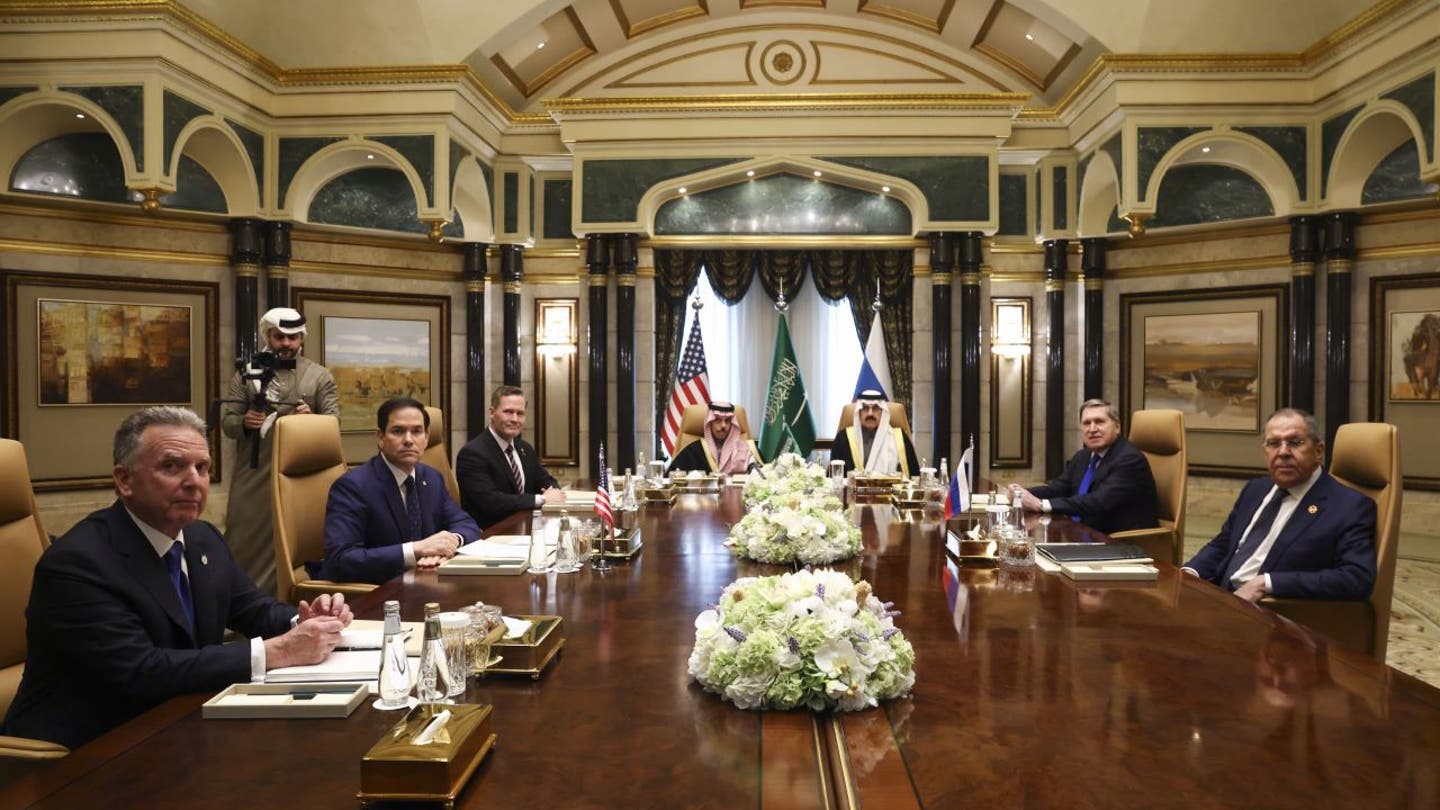
US and RUSSIA Seek PEACE: Bold Moves to End Ukraine Conflict
— The U.S. and Russia are working to improve diplomatic ties, aiming to end the war in Ukraine. Secretary of State Marco Rubio met with Russian officials in Saudi Arabia for over four hours. They discussed reestablishing diplomatic missions in Washington and Moscow. Rubio stressed the need for operational facilities as a base for further talks.
Rubio proposed forming a “high-level team” to negotiate an end to the Ukraine conflict, though leadership details are unclear. The Trump administration plans to expand geopolitical and economic relations with President Putin as part of this effort.
While Rubio didn’t specify when sanctions against Russia might be lifted, he highlighted the importance of EU involvement due to their strict sanctions on Russia. This development marks a significant step towards cooperation between the U.S., Russia, and Europe in resolving tensions.

MAYOR ERIC Adams’ Team In Turmoil: Resignations Spark Leadership Crisis
— Four top deputies in New York City Mayor Eric Adams’ administration have resigned, signaling potential instability within his leadership team. This development comes amid growing dissatisfaction among city workers and officials. Adams has been actively engaging with federal authorities to enhance law enforcement collaboration on immigration issues.
In a separate matter, the Trump administration’s Department of Government Efficiency (DOGE) is under scrutiny for its involvement with the Social Security Administration. A top official resigned following disagreements over sensitive data handling, reflecting ongoing tensions between federal agencies and DOGE’s cost-cutting measures led by Elon Musk.
Protests against President Donald Trump and Elon Musk continue nationwide, with demonstrators voicing concerns over their policies and actions. Meanwhile, the Department of Homeland Security launched a new ad campaign warning criminal migrants against entering the U.S., reinforcing strict immigration policies under Trump’s leadership.
Amidst these political developments, Trump’s administration has initiated firings within the Federal Aviation Administration following a fatal plane crash in Washington D.C., raising concerns about air traffic safety during peak travel times. Additionally, federal health agencies are evaluating recent layoffs’ impact on their operations as they navigate staffing changes prompted by government directives.

US-RUSSIA PEACE Talks: Ukraine’s Future Decided Without Input?
— U.S. and Russian officials met in Saudi Arabia to discuss a peace agreement for Ukraine, notably without Ukrainian representatives. Secretary of State Marco Rubio and Russian Foreign Minister Sergey Lavrov led the talks, exploring terms for a ceasefire and elections in Ukraine. The discussions also included the possibility of a meeting between President Donald Trump and President Vladimir Putin.
State Department spokeswoman Tammy Bruce confirmed that both sides agreed to “lay the groundwork for cooperation” on various issues beyond Ukraine. High-level teams will be appointed to work on ending the conflict in Ukraine, with new elections being a potential part of the peace deal framework. Diplomatic sources suggest that both countries view Ukrainian President Volodymyr Zelenskyy as having slim chances of re-election, which could influence negotiations.
Rep. Brian Fitzpatrick, R-Penn., expressed opposition to forced elections in Ukraine via social media, highlighting concerns over external pressure on Ukrainian sovereignty. Despite viewing Putin as a “great competitor,” U.S. officials still consider him an adversary amid these complex negotiations over Ukraine’s future stability and leadership dynamics.;

EUROPEAN Leaders’ BOLD Move: Troops to Secure Ukraine’s Future?
— A group of European countries is quietly planning to send troops to Ukraine to enforce a future peace settlement with Russia. Britain and France lead this effort, though details are scarce. The initiative aims to ensure Ukraine’s security, especially since NATO membership for Ukraine is currently off the table.
British Prime Minister Keir Starmer acknowledged the need for security guarantees for Ukraine if peace is achieved. European nations have discussed potential troop deployment for about a year, with urgency rising amid concerns over U.S. President Donald Trump’s possible negotiations with Putin.
In December, before Trump took office, European leaders met with Ukrainian President Volodymyr Zelenskyy in Brussels to discuss the plan further. The meeting included representatives from Britain, Denmark, France, Germany, Italy, the Netherlands, Poland, and top EU officials.
French President Emmanuel Macron initially promoted this idea in early 2024 but faced criticism from Germany and Poland when he did not rule out deploying troops on Ukrainian soil. The role of the United States in this plan remains uncertain as discussions continue among European leaders.

TRUMP’S Bold Move: Push for Ukraine Peace Talks After Putin Call
— Former President Donald Trump plans to start talks to end the Ukraine war. This follows a recent call with Russian President Vladimir Putin. Trump emphasized the need for dialogue and cooperation, suggesting talks could begin “immediately.”
This announcement comes as tensions rise in Eastern Europe, involving NATO and European military actions. Trump’s diplomatic approach contrasts with the current administration’s stance on the conflict, possibly signaling a new way to handle international disputes.
Successful negotiations could ease hostilities and create a peace plan, impacting U.S., Russia, and Ukraine relations. Trump’s experience may be key in brokering peace for humanitarian and geopolitical reasons.
The U.S. government has not yet responded to Trump’s proposal, leaving questions about future foreign policy under the Biden administration. The situation remains fluid as developments unfold in this breaking news story.

Video
UKRAINE AID Boost: UK’S Bold £182 Billion Defense Commitment
— The United Kingdom and its allies have pledged £18.2 billion in military aid to Ukraine. This marks a big step up in support. The announcement came after a meeting of the Ukraine Defence Contact Group, highlighting Western nations’ key role in helping Ukraine defend against Russian aggression.
British Defence Secretary John Healey shared details of the package at NATO headquarters. It includes radar systems, anti-tank mines, and drones. The UK is working with Norway and other countries to strengthen Ukraine’s military strength and deter more Russian hostility.
Besides equipment, the UK and allies are focusing on training Ukrainian forces for battle readiness through 2025. Over 40 countries discussed immediate needs and long-term defense plans to keep Ukraine secure against ongoing threats.
This pledge highlights global stakes in defending democratic values amid conflict with Russia. The UK’s leadership shows its strong commitment as an ally of Ukraine during these tough times, sending a clear message against Russian advances.
More Videos
Invalid Query
The keyword entered was invalid, or we couldn't gather enough relevant information to construct a thread. Try checking the spelling or entering a broader search term. Often simple one-word terms are enough for our algorithms to build a detailed thread on the topic. Longer multi-word terms will refine the search but create a narrower information thread.
Politics
The latest uncensored news and conservative opinions in US, UK, and global politics.
get the latestLaw
In-depth legal analysis of the latest trials and crime stories from around the world.
get the latest